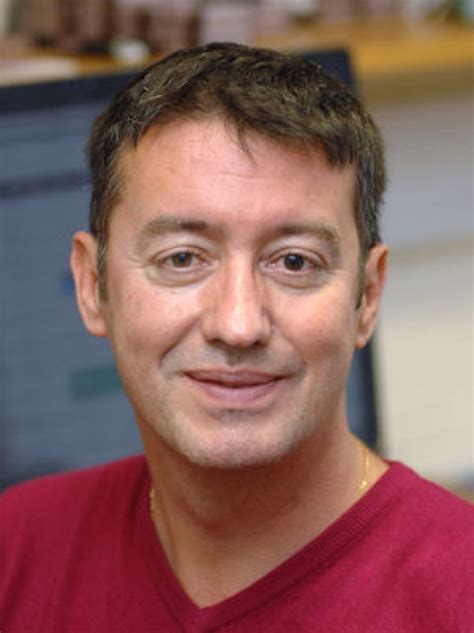A Quote by Ken Robinson
Creativity is very much like literacy. We take it for granted that nearly everybody can learn to read and write. If a person can't read or write, you don't assume that this person is incapable of it, just that he or she hasn't learned how to do it. The same is true of creativity.
Related Quotes
When you learn to read and write, it opens up opportunities for you to learn so many other things. When you learn to read, you can then read to learn. And it's the same thing with coding. If you learn to code, you can code to learn. Now some of the things you can learn are sort of obvious. You learn more about how computers work.
I'm happy to be a woman but much of it was learned over the course of life. Really thudded into me. You learn it. It's a kind of mastery and artistry. The deeper person underneath the scent of Diptyque Philosykos or whatever is much less gendered. Every person has a range. In fiction, you get to be it all. I'm as much the men in my book as I am the women. I write how I write and there is no mission to stake a claim.
If you are going to write, say, fantasy - stop reading fantasy. You've already read too much. Read other things; read westerns, read history, read anything that seems interesting, because if you only read fantasy and then you start to write fantasy, all you're going to do is recycle the same old stuff and move it around a bit.
A completed book exists in its entirety, although we humans read it in a time sequence from the beginning to the end. Just as an author does not write the first chapter, and then leave the others to write themselves, So God's creativity is not to seem as uniquely confined to, or even especially invested in, the event of the Big Bang. Rather his creativity has been seen as permeating equally all space and all time: his role as Creator and Sustainer merge.
The most important thing is you can't write what you wouldn't read for pleasure. It's a mistake to analyze the market thinking you can write whatever is hot. You can't say you're going to write romance when you don't even like it. You need to write what you would read if you expect anybody else to read it.
God is the creativity, so if you really want to enter into the world of God you will have to learn the ways of creativity - and that has disappeared. Instead of creativity we value productivity: we talk about how to produce more. Production can give you things but cannot give you values. Production can make you rich outwardly but it will impoverish you inwardly. Production is not creation. Production is very mediocre; any stupid person can do it, one simply needs to learn the knack of it.
Now, my mom did not read well and she read 'True Romance' magazines, but she read with me. And she would spend 30 minutes a day, her finger going along the page, and I learned to read. Eventually, by the time I was four and a half, she could iron and I could sit there and read the 'True Romance.' And that was wonderful.
I have learned that my assignment is to write books for people who do not like to read books. I really try to connect with people who are not given to spending a lot of time with an open book. Pay day to me is when somebody comes up to me and says, "I never read books but I read yours." I have a heart for that person.
Even my colleagues don't read classic criticism. And my feeling is that if you don't do that then you're not really practicing your craft. That's how you learn how to do it. You don't learn how to write about jazz just from listening to jazz. You learn how to write by reading the great writers and how they worked, the great music critics.




































